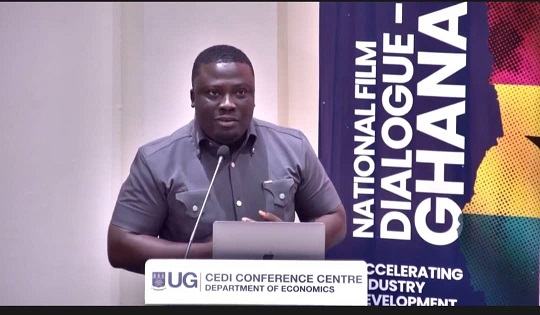Ashanti Regional Minister, Dr. Frank Amoakohene has disclosed that he realised the creative industry (Kumawood) in the region was plagued by “destructive competition” when he took office.
This unhealthy rivalry hindered collaboration and progress in the sector.
Speaking at the maiden National Film Dialogue in Accra on Tuesday, September 16, Dr. Amoakohene said he immediately formed a committee to revive Kumawood, the local film industry, and boost the creative sector, noting that the sector placed the region in a good spotlight.
“I say that one of the key things that put Ashanti region on the map is the creatives, artistes, rich echo tourism centres and our culture and so from the word go, I didn’t waste time in ensuring that we fixed some of the challenges in this sector.
“I realised that the industry was full of destructive competition instead of having a complementary collaboration to project the Kumawood industry.
“Times without number, I had to personally sit in meetings and see how best to able to unite and fix the sector. With the support of the Tourism Minister and National Film Authority, we fixed majority of their problems and were able to get them to put up one of the best performances during the Ashantifest.
“This led to the establishment of Kumawood Ashanti film industry which brought on board all other sectors of the creative industry. It is a robust secretariat now to mentor, groom and embark on projects that will tell our story well, project our culture and be able to promote our region and country,” he said.
To promote local content, Dr. Amoakohene suggested making Ghanaian movies freely available to Senior High School students.
This approach aims to cultivate interest in local films from a young age, fostering a loyal audience base.
“As we also work on generating revenue, one key thing that has come up is that we need to invest. Most of the young ones, especially those in SSS and downwards are losing touch of our local content and that is one area we should put emphasis on.
“At that level, we can offer it to them for free, so that they will get addicted to the local content. Once they get to the university where they can pay the 20 cedis or 50 cedis, we can chase them there because by then, they are already addicted to the local content,” he said










